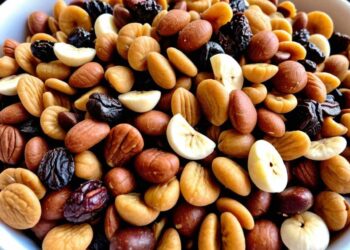Can decaffeinated coffee dehydrate you? No! Decaf coffee is mostly water and does not cause dehydration. In fact, it helps with hydration, making it a safe and enjoyable choice for daily fluid intake.
Many coffee drinkers enjoy their daily cup of joe but sometimes opt for decaffeinated coffee to reduce caffeine intake. A common concern is whether decaffeinated coffee can lead to dehydration. Let’s explore the facts.
Understanding Decaffeinated Coffee
Decaffeinated coffee, or “decaf,” is regular coffee that has undergone a process to remove most of its caffeine content—usually around 97% or more. Despite being lower in caffeine, decaf still retains the rich taste and aroma of coffee, making it a popular choice for those who love the flavor but want to avoid the stimulating effects of caffeine.
Does Decaf Coffee Cause Dehydration?
The short answer is no, decaffeinated coffee does not dehydrate you. While caffeine has mild diuretic properties—meaning it can increase urine production—decaf coffee contains only a small amount of caffeine, typically about 2-5 mg per cup compared to 95 mg in regular coffee. This minimal caffeine content is not enough to cause significant fluid loss.
Moreover, coffee itself is primarily composed of water, which helps keep you hydrated rather than depleting fluids. Studies have shown that moderate coffee consumption, whether caffeinated or decaffeinated, contributes to daily fluid intake and does not lead to dehydration.
Can Dehydration Cause Back Pain? Understanding the Connection!
Decaf vs. Regular Coffee: Hydration Effects!
- Regular Coffee: High caffeine intake (above 250-300 mg per day) may have a temporary diuretic effect, but for habitual coffee drinkers, the body adapts, reducing this effect.
- Decaf Coffee: Since it contains very little caffeine, its diuretic impact is negligible, and it hydrates the body similarly to water.
Other Factors to Consider
While decaf coffee itself does not dehydrate you, adding sugar, cream, or syrups in large amounts can lead to other health concerns, such as weight gain or blood sugar spikes. Additionally, if consumed in excess, coffee (including decaf) might contribute to acid reflux or digestive discomfort in sensitive individuals.
Negatives of Decaf Coffee
Decaf coffee is a good option for people who want less caffeine, but it does have some downsides:
- Possible Chemical Residue – Some methods of removing caffeine use chemicals, though many brands now use safer processes like the Swiss Water method.
- Slightly Less Antioxidants – Regular coffee has more antioxidants, which help fight cell damage.
- Taste Differences – Some people feel decaf doesn’t taste as rich as regular coffee.
- Possible Acid Reflux – Just like regular coffee, decaf can still trigger acid reflux in some people.
FAQs:
Can Decaf Coffee Count as Water Intake?
Yes! Decaf coffee is mostly water, so it helps keep you hydrated just like other drinks. The small amount of caffeine in decaf is not enough to cause dehydration.
Is Decaf Tea Still Dehydrating?
No, decaf tea is not dehydrating. Like decaf coffee, it has very little caffeine, so it won’t make you lose more water than you take in. It actually helps with hydration.
Does Decaf Coffee Dry Out Your Skin?
No, decaf coffee does not dry out your skin. Since it does not dehydrate your body, it won’t take moisture away from your skin. However, if you drink too much coffee (regular or decaf) and don’t drink enough water, your skin might feel dry due to overall low hydration.
Conclusion:
Drinking decaffeinated coffee will not dehydrate you. It provides hydration similar to other non-caffeinated beverages and can be included as part of your daily fluid intake. If you’re looking to reduce caffeine without compromising your hydration levels, decaf coffee is a great option.










Discussion about this post